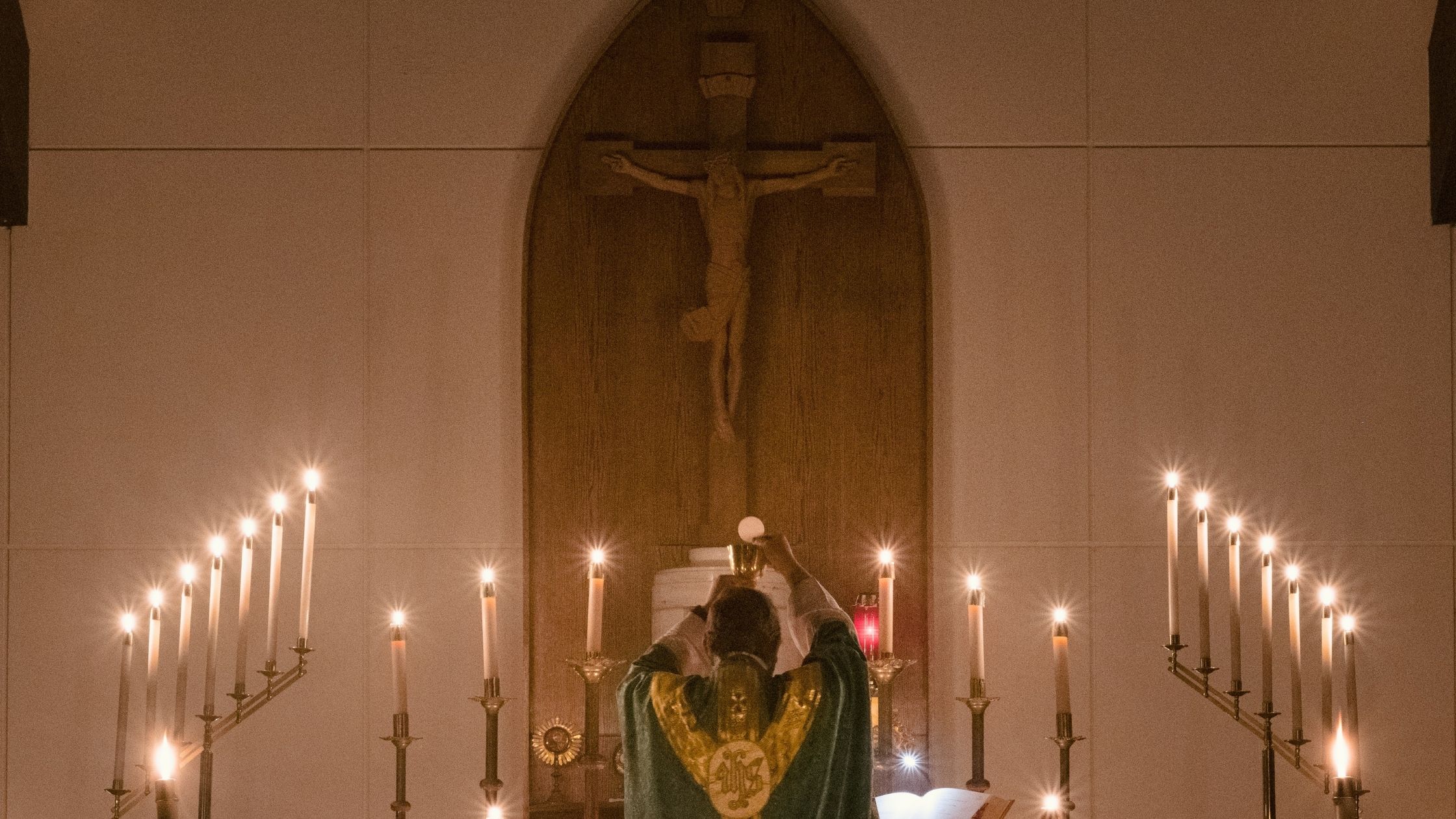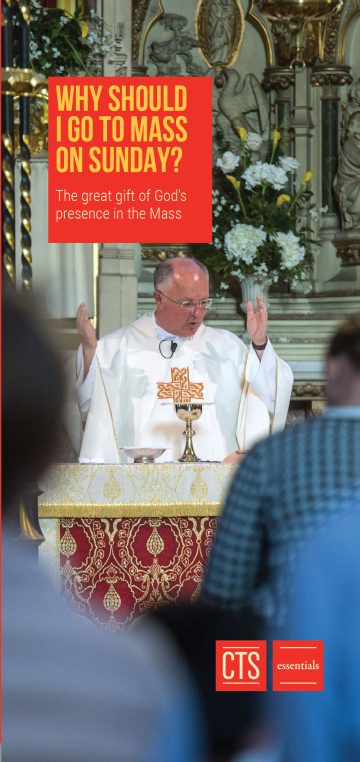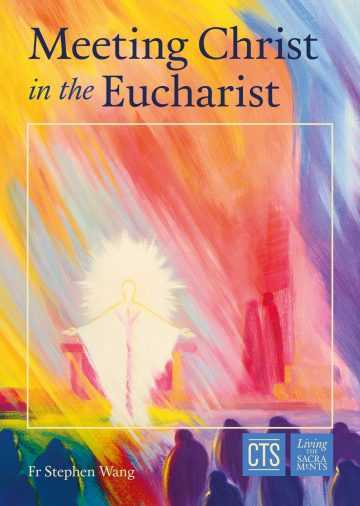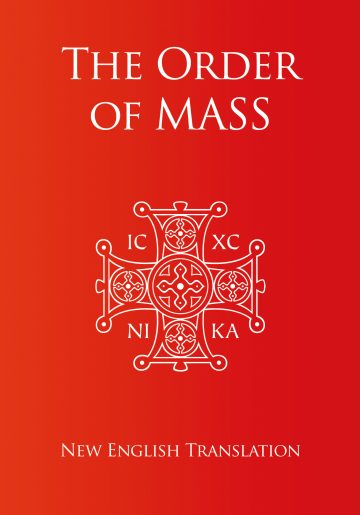What makes the Mass so important?
The Catholic Church calls the Mass ‘the source and summit of our Christian lives’ (Catechism, 1324). It is both source and summit because, at Mass, we encounter Jesus in a unique way. There we come into His presence, uniting our lives with His: there we receive Christ himself in Holy Communion, which is truly His Body and Blood.
At Mass, our souls are filled with His power and strength and we are given the means to love one another, as Christ commanded (John 13:34). Finally, the Mass is the best way of giving thanks to
God for all the gifts He has given us. Another word for the Mass is ‘eucharist’, which means ‘thanksgiving’.
Who invented the Mass?
Jesus himself. The night before He died, Jesus celebrated the Last Supper with His apostles. This was the Passover meal, a feast the Jewish people have always celebrated to remember the night God freed them from slavery to the Egyptians. But Jesus was to give this celebration a whole new meaning. He chose the Last Supper as the way in which He would remain with His disciples forever.
At the meal, Jesus took some bread, broke it and said: This is my Body, which will be given up for you (Matthew 26:26; Mark 14:22; Luke 22:19). Later, when the meal was ended, He took some wine and said: This is the chalice of my Blood, the Blood of the new and eternal covenant, which will be poured out for you and for many for the forgiveness of sins. Do this in memory of me (Matthew 26:27; Mark 14:2; Luke 22:20).
These are the same words we hear spoken at every Mass. When the priest says them, he is acting in the person of Jesus: the bread and wine really do become the body and blood of Christ. The Church calls this amazing change Transubstantiation. It is a mystery, beyond our understanding, but accepted in faith. Very simply, it means that when we come to Mass, we are in the presence of Jesus, just as much as His apostles were at the Last Supper.
You said the Last Supper took place just before Jesus died – Why is that significant?
It was shortly after the Last Supper that Jesus was arrested, tried, tortured and crucified – and He rose again from the dead three days later. Christians believe that these events brought us salvation – Jesus’ death was a sacrifice to God His Father for the sins of all humanity.
At every Mass, the bread and wine are changed into Christ’s body and blood – the body which died on the cross, the blood which was shed.
This means that at every Mass we join in a special way with the event of the crucifixion – we offer to God the same sacrifice, which Jesus offered to the Father on the cross.
We also offer our lives along with Jesus, asking the Father to accept everything we have – our joys, our talents, our sorrows, our all. There are many important aspects to the Mass. Another is that the Mass is also a great prayer of thanksgiving and of praise to God, which we make to Him through His Son, Jesus Christ.
So at the Mass, we offer ourselves to God – don’t we receive anything back?
What we receive is the greatest gift of all: Holy Communion. As the Catechism says: ‘To receive communion is to receive Christ Himself who has offered Himself for us’ (1382). When we receive
Holy Communion, we truly receive the Body and Blood of the Lord. We will never be more intimately united to Jesus than in Communion, and we will never receive anything so valuable in helping us to model our lives upon His. Holy Communion helps us to become like Christ because it is Christ Himself whom we receive.
It does seem like a wonderful gift. Is it given only for ourselves?
No. Holy Communion is the high point of the Mass, but it is not the end. The strength we receive from the Mass should lead us nearer to God, should spur us on in our struggles against sin, and
should empower us to help others. The Christ we have just received in Holy Communion is the same Christ who asks us to show true love to our neighbour, especially the poorest and most needy: ‘As often as you do these things to the least of my brothers and sisters you do them to me’ (Matthew 25:40).
So it sounds as if the Church can’t do without the Mass?
Exactly! The Church quite literally needs the Mass to survive. Only there can we receive the strength we need to live a truly Christian life. The Mass unites us with our Lord and Saviour on earth, and it prepares us for the heavenly life to come.
The Structure of the Mass
✙ Penitential Rite: We acknowledge our sins and call on the mercy of God
✙ Readings: We listen to God’s word in the Bible – through which He speaks to us with a promise for our lives
✙ Offertory: The bread and wine are brought to the altar. In spirit, we offer our lives as well
✙ Eucharistic Prayer: Jesus is made present, and through Him, we offer our prayers to the Father for the needs of the world
✙ Communion: We receive Christ’s body and blood, a moment of intimate closeness to Jesus
✙ Dismissal: We are sent out ‘to love and serve the Lord’, and to bring His Good News to others.



